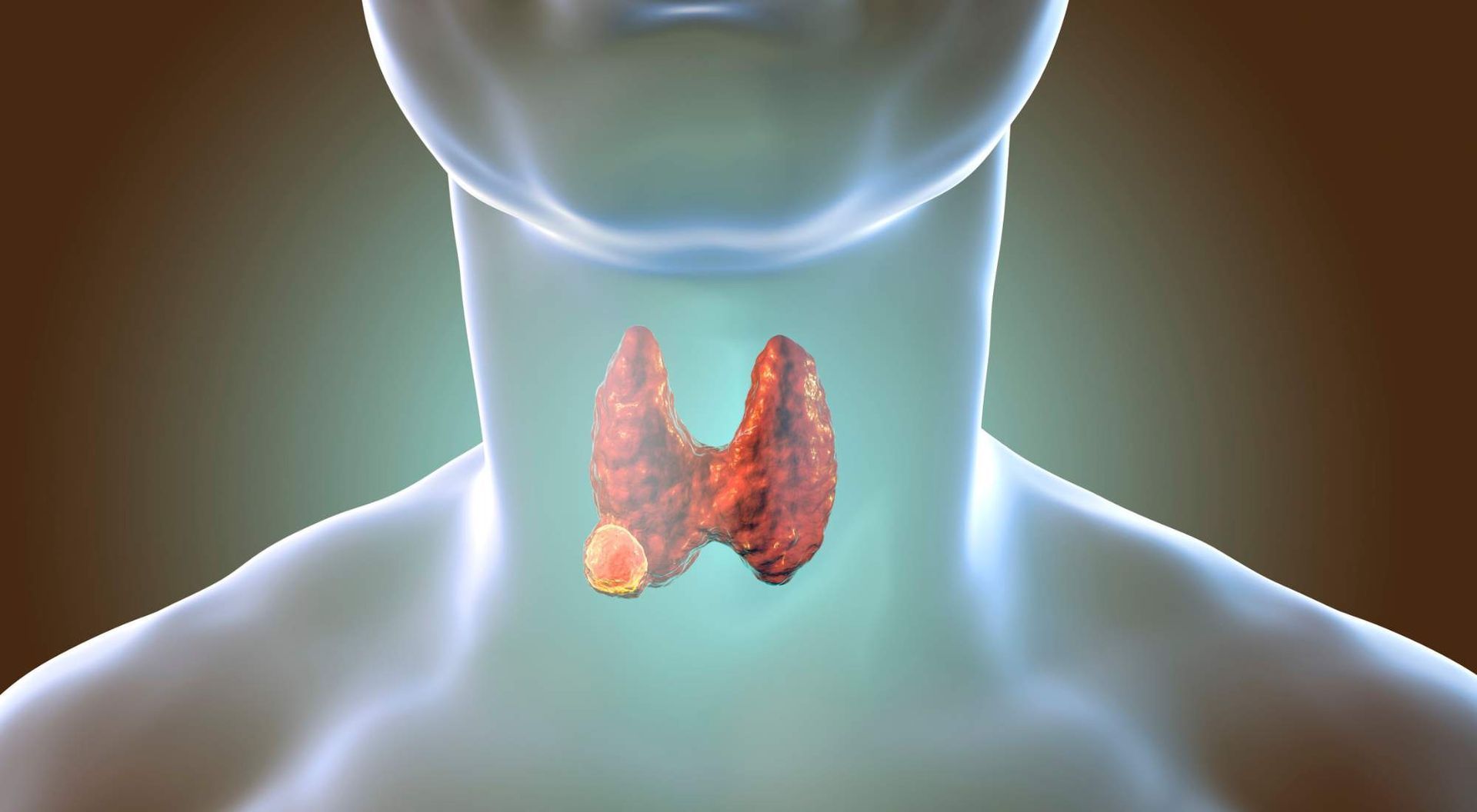What Supplements Help Hashimoto's Disease?
"The content below is not intended to be a substitute for professional medical advice, diagnosis, or treatment. Always seek the advice of your physician or other qualified health provider with any questions you may have regarding a medical condition."
Unexplained fatigue. Weight gain. Muscle weakness. Depression.
The list of symptoms goes on. Are you dealing with Hashimoto’s disease and want to know the best approach for managing your health?
Although hormone replacement therapy is a common treatment option for Hashimoto’s, working to heal your symptoms through a natural approach might sound more ideal.
Learn how to manage Hashimoto’s through nutrition and supplementation and the many options you might have for maximizing optimal thyroid health.
Table of Contents

What Supplements Help Hashimoto's Disease?
Did you know that Hashimoto’s thyroiditis affects more than 14 million people in the United States?
While thyroid replacement therapy is a common medical treatment for Hashimoto’s disease, many are experimenting with nutritional approaches — like the use of supplements — to support and manage the disease.
One study follows a 34-year-old female with Hashimoto’s who chose to forego hormone replacement therapy and instead attempt to manage her disease through nutrition, including:
- Following a phytonutrient-rich diet
- Avoiding sensitive foods
- Consuming quality fats
- Eating fermented foods
- Drinking filtered water
- Utilizing a handful of supplements
The study followed her over five months and found she was able to manage her Hashimoto’s through this natural approach.
If you’ve been diagnosed with Hashimoto's, you might consider adding supplements to your routine. Unsure where to start? Let Dr. Sergi at HealthierU guide you on your journey of natural healing where we’ll consider the following supplements for Hashimoto’s:
- Selenium
- Probiotics
- Vitamin D
- Ashwagandha
- Vitamin B12
- Vitamin B1
- Naltrexone
- Betaine with Pepsin
- Systemic Enzymes
- Moducare
- Magnesium
- Ferritin
- Zinc
13 Supplements for Hashimoto’s Disease
#1: Selenium
A major benefit of selenium is that it regulates the hormones triiodothyronine (T3) and thyroxine (T4). These hormones are produced by the thyroid gland, and when working properly, they increase the basal metabolic rate, which has many benefits, including:
- Higher body temperature
- Faster reflexes
- Improved concentration
- Faster pulse and stronger heartbeat
- Using food faster
- Brain maturation
- Growth promotion
Selenium is an essential trace element required for thyroid hormone synthesis and exerts antioxidant effects. One
study found that because selenium-dependent enzymes have several modifying effects on the immune system, even someone with a mild deficiency may develop autoimmune thyroid diseases.
#2: Probiotics
While there is no clinical evidence to support that probiotics directly help manage Hashimoto's, what we do know is that probiotics support gut health and stronger immunity by balancing microflora in the digestive tract.
A healthy gut is a happy gut, and working to repair your digestive lining will lead to other benefits, including reduced inflammation, which directly helps your thyroid.
#3: Vitamin D
Vitamin D and thyroid disorders go hand-in-hand. Not only is a vitamin D deficiency a risk factor for developing many thyroid disorders but through research, it’s been found that many patients with thyroid disorders are deficient in vitamin D.
One study looked at the association between vitamin D deficiency and hypothyroidism, discovering that almost 26% of patients included in the study of 7,943 participants had a vitamin D deficiency.
Because vitamin D helps to regulate your immune system, ensuring you’re receiving enough is ideal. The best way to get enough vitamin D is through skin exposure to sunshine (15–20 minutes a day), but if that’s not ideal, a supplement can help.
#4: Ashwagandha
Ashwagandha has been proven to help reduce thyroid and adrenal issues by increasing the thyroid’s secretion of T3 and T4. By doing so, the ability to cope with stress and balance hormones is increased.
Research also suggests ashwagandha may possess other beneficial properties, including:
- Helping with stress and anxiety
- Anti-inflammatory
- Lowering blood sugar
- Helping improve muscle mass and strength
- Improving heart health
- Improving symptoms of arthritis
- And more
#5: Vitamin B12
Most of the B vitamins (B1, B2, B3, B5, B6, B8, B9, and B12) are known for supporting energy maintenance and many cellular and metabolic functions. Because vitamin B12 is so indispensable to several biochemical processes, it’s affectionately known as the “energy vitamin,” working to support normal cellular functions and functions that fight fatigue.
Similarly to vitamin D, many patients with thyroid diseases — specifically hypothyroidism — are
deficient in vitamin B12.
#6: Vitamin B1 (Thiamine)
After conducting other studies on fatigue and related disorders using a high dose of thiamine, a study was done to explore the chronic fatigue that accompanies autoimmune diseases, including Hashimoto’s.
The study followed three patients with Hashimoto’s on thyroid hormone replacement and measured their fatigue. Each patient was given 600 mg/day of thiamine, which was proven to lead to partial or complete regression of fatigue.
This study suggests that a thiamine deficiency related to fatigue may be due to a dysfunction of intracellular transport of thiamine, most likely related to the autoimmune process of Hashimoto’s.
#7: Naltrexone
Although many define Naltrexone as a medication that helps counter drug addiction, it can also act as a supplement and be used as an immune modulator to reduce the autoimmune attack on the thyroid.
By increasing the amount of T-regulatory cytokines and modulating TGF-B, a low-dose Naltrexone lowers antibodies and helps to balance the immune system.
Naltrexone is also believed to potentially increase endorphins, which is helpful for those facing autoimmune conditions. People with autoimmune conditions, like Hashimoto’s, often have lower endorphins which play a part in some bigger symptoms, like fatigue, pain, and overall lethargy.
#8: Betaine With Pepsin
Many Hashimoto’s patients have a deficiency in stomach acid, so supplementing with something to help break down food to make it more easily absorbed by the body is advisable.
Betaine with pepsin is a natural, gastric acid that helps with the absorption of calcium, vitamin B12, protein, and iron. Patients with Hashimoto’s who supplement with betaine with pepsin experienced improved symptoms, like:
- Higher energy levels
- Reduced pain
- Improved moods
- Weight loss
#9: Systemic Enzymes
Systemic enzymes work to break down the circulating immune complexes that can trigger autoimmune diseases. Specifically for Hashimoto’s, systemic enzymes help to normalize TSH and reduce or eliminate antibodies so your body can heal.
One
study gave 40 patients with Hashimoto’s, who were on levothyroxine, a dose of systemic enzymes for three to six months. Over that time, the patients saw a reduction of thyroid symptoms and antibodies and had more normal thyroid ultrasounds. Ultimately, patients were able to reduce their medication doses or eliminate them completely.
#10: Moducare
Stress is often a major contributing factor for patients with Hashimoto’s, making the balance of adrenals an integral part of maintaining overall health. Because the adrenals and immune system work so closely together, working to promote a balance is ideal.
How does Moducare work? By promoting a normal balance of adrenal hormones, cortisol, and DHEA, Moducare acts as a safeguard against negative stress reactions.
It also contains natural plant sterols and sterolins that balance
Th1 and Th2 helper cells, which strengthen cellular immunity and overactive immune responses. With Moducare, people with Hashimoto’s have been able to improve adrenal function and reduce antibodies in their thyroid.
#11 Magnesium
Magnesium has extensive benefits, but many thyroid patients find they are deficient in magnesium, which may be responsible for symptoms that lead to thyroid abnormalities.
Magnesium helps convert the inactive thyroid hormone into the active thyroid hormone, so when levels are low, the thyroid can’t properly function. Supplementing with magnesium may help with the following thyroid symptoms:
- Reducing inflammation
- Reducing thyroid antibodies
- Improving sleep
- Reducing headaches
#12: Ferritin
Ferritin is a storage form of iron, so if you have any suspicion of thyroid disease, learning if you’re deficient in ferritin can be crucial. If your iron stores are low, increasing them can help increase symptoms that overlap with Hashimoto’s disease and hypothyroidism, but could just be a ferritin deficiency.
Ferritin can be toxic if over-consumed, so please only use ferritin with the guidance of a healthcare professional in the appropriate dosages if you are found to be deficient.
#13: Zinc
Zinc plays an important role in your metabolism and immune system, making it an essential nutrient for proper thyroid function. Many causes of zinc depletion are common conditions in those with Hashimoto’s so working to increase your zinc levels may help to reduce symptoms and manage Hashimoto’s and other thyroid conditions.
You might have a zinc deficiency if you:
- Have poor wound-healing abilities
- Have impaired taste and/or smell
- Experience thin, brittle, peeling, or white-spotted nails
- Suffer from diarrhea
- Notice significant hair loss
- Experience depression
- Have a loss of appetite
- Have impaired vision
- Experience unexplained weight loss
- Are less alert
- Have skin issues (acne, rashes, sores, eczema, fungus)
Many causes of zinc depletion are common co-occurring symptoms in those with Hashimoto’s, so increasing your zinc intake may help to reduce symptoms and get the autoimmune disease under control.

What Vitamins Should I Not Take With Hashimoto's?
Much more research should be done here, but it is known that high doses of iodine supplements can cause adverse effects in people with Hashimoto’s unless they have an iodine deficiency.
The American Thyroid Association recommends avoiding dosages greater than 1,100 mcg/day of iodine to avoid thyroid dysfunction.
If you’re unsure, seeking the guidance of a professional can help. Dr. Sergi at HealthierU can help you determine what nutritional deficits you might have and suggest supplements to help safely treat your Hashimoto’s naturally. Get Hashimoto’s and hypothyroidism treatment in Brooklyn today.

HealthierU: Helping Patients Manage Hashimoto’s Disease Through Holistic Nutrition
Avoiding hormone therapy replacement for Hashimoto’s sounds appealing, right? By following a holistic diet for Hashimoto’s disease and supplementing with the right vitamins and minerals, you can work to manage your thyroid disease by:
- Balancing antibodies
- Increasing immunity
- Supporting thyroid hormones
- And more
Dr. Sergi at HealthierU can guide you on your journey of healing Hashimoto’s through holistic nutrition. She works to address the root cause of the disease — whether it be an overactive immune system, vitamin deficiencies, or overlapping symptoms — before recommending a natural approach.
Stop letting Hashimoto’s disease control you. Contact HealthierU to request a nutrition consultation today.



